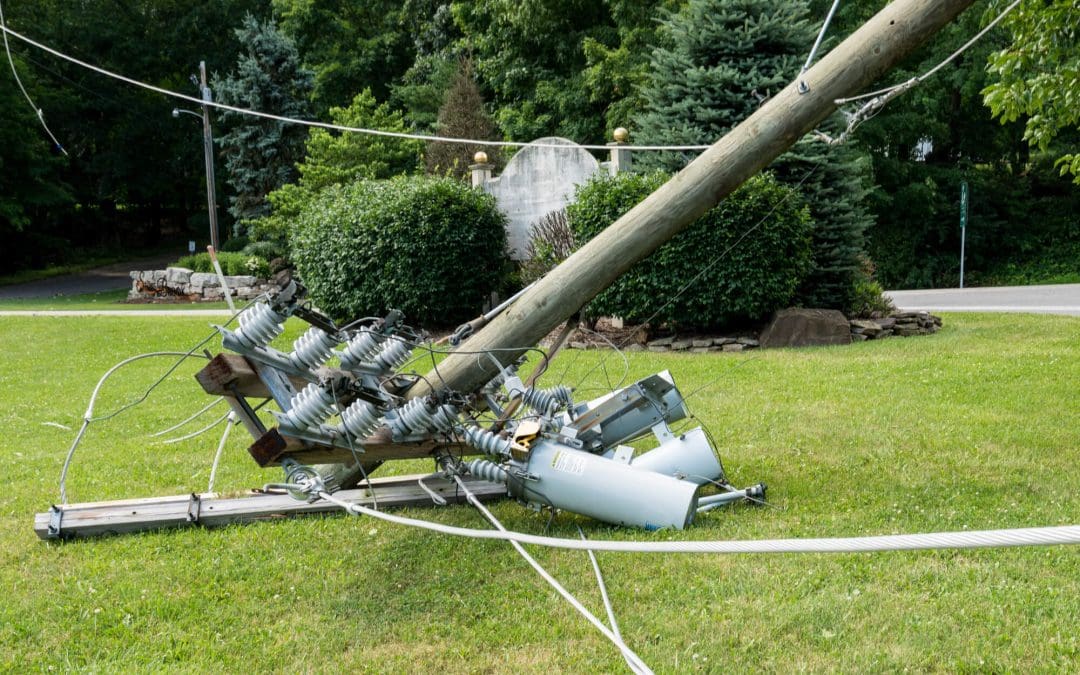Power outages can happen when you least expect them. Whether it’s a storm, a technical glitch, or a natural disaster, losing power can be a stressful experience. However, with a little preparation, you can reduce the hassle and stay safe and comfortable when the lights go out. We’ll walk you through some practical steps to help you prepare for a power outage.
Stock Up on Emergency Supplies When You Prepare for a Power Outage
One of the best ways to prepare for a power outage is to have the right supplies on hand. Think of it like packing a survival kit. It’s important to have a supply of essentials that can keep you comfortable and safe without electricity. Start by gathering flashlights, extra batteries, and a portable phone charger. Candles can be nice for ambiance, but they pose a fire risk, so stick to battery-powered lights for safety.
In addition to lighting, you’ll want to have enough non-perishable food and water for at least 72 hours. Choose foods that don’t need cooking or refrigeration, like canned goods, granola bars, and dried fruits. If you have a baby or small children, make sure to have any necessary formula, baby food, and diapers.
Keep Your Refrigerator and Freezer Closed
Food storage can be tricky during an outage, but if your fridge or freezer is stocked, you have a better chance of preserving your food. A full fridge stays colder longer, and frozen items can stay frozen for up to 48 hours if the freezer door is kept closed. If the power goes out, minimize how often you open the fridge or freezer, as that will cause the temperature to rise more quickly.
Another good tip is to fill empty spaces in your fridge with bottles of water. This helps keep things cold when the power is out, making you less likely to lose your food in a prolonged outage.
Have a Backup Power Source
If you’re in an area that experiences frequent or long-lasting power outages, investing in a backup power source can be a game-changer. Options range from simple battery-powered generators to larger, whole-house generators that kick in automatically when the power goes out.
For shorter outages, portable power banks or solar-powered chargers can keep your phone charged. If you want to keep the lights on and essential appliances running, consider purchasing a generator. Follow the manufacturer’s instructions, especially regarding safe placement and fueling.
Know How to Use Your Appliances Safely
If you do decide to use a generator, it’s important to follow safety guidelines. Never run a generator indoors, as it can produce dangerous carbon monoxide. Keep it outside, at least 20 feet away from windows, doors, and vents. Also, make sure your generator is properly grounded, and don’t overload it with too many appliances.
For heating and cooling, never use outdoor appliances like charcoal grills or gas-powered heaters inside, as they can also release harmful gases into your home.
Plan for Communication
When the power goes out, it’s easy to feel cut off from the world. Communication can be a challenge if your phone dies and you don’t have access to Wi-Fi or cellular networks. To stay connected, consider having a battery-powered or hand-crank radio to listen to emergency updates. You can also keep a list of important contacts on paper, in case your phone dies and you can’t access your digital contacts.
If you rely on medical devices that need power, have a backup plan in place. This might include getting a battery-operated version of the device, using a portable generator, or making arrangements with a nearby family member or friend to help you.
FAQs About How to Prepare for a Power Outage
How long can food stay in the fridge during a power outage?
The USDA recommends that perishable foods like meat, dairy, and leftovers should not be kept at temperatures above 40°F for more than two hours. If the power is out for more than four hours, discard perishable items.
Can I use my generator inside?
No, generators should never be used indoors. They produce carbon monoxide, which can be fatal in enclosed spaces. Always use generators outside, at least 20 feet away from windows or doors.
What should I do if my power goes out?
First, check your fuse box or circuit breaker to ensure it’s not a localized issue. If the outage is widespread, minimize your energy use, avoid opening the fridge and freezer, and stay informed through local news or a battery-powered radio.
360 Home Inspections provides inspection services to Northern New Jersey. If you’re buying or selling a home, contact us to request an appointment.

